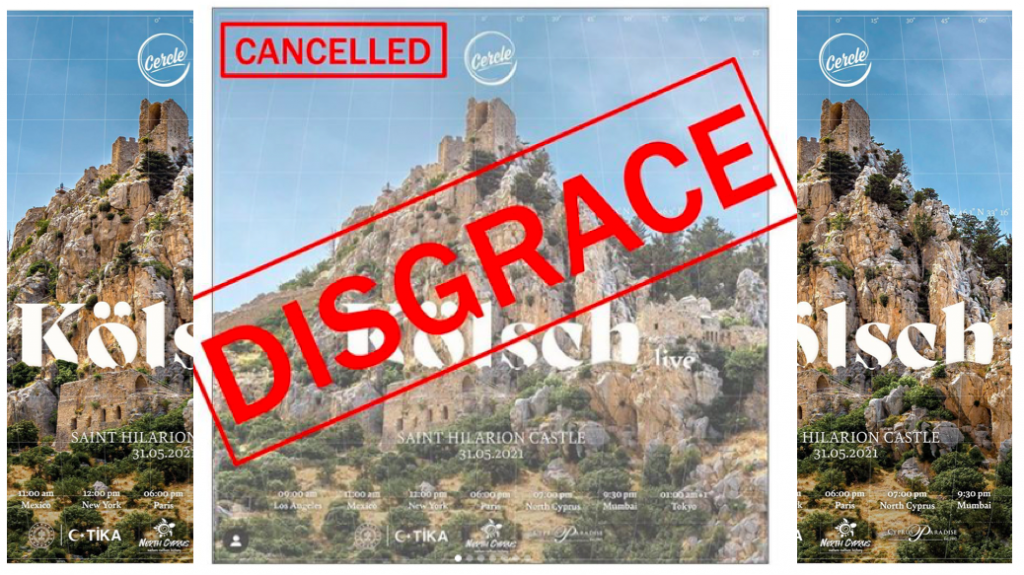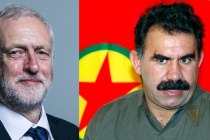The cancellation of a concert by renowned DJ Kölsch at Saint Hilarion Castle in North Cyprus has left Turkish Cypriots feeling angry and frustrated.
The Danish DJ was scheduled to play a 90-minute live set in the medieval castle atop the Girne / Kyrenia mountain range on Monday evening, 31 May.
The concert was being organised by international event producers Cercle, and sponsored by Turkey’s cultural arm TIKA, the North Cyprus Tourism Office and tour operator Cyprus Paradise.
Due to Covid restrictions and the historic nature of the location, there was to be no audience. Instead the concert was going to be livestreamed for free to a global audience on multiple digital platforms. News of the concert was circulated online and thousands of people had registered to watch the performance.
The event provided the perfect opportunity to promote both the artist and the stunning venue – something Cercle has acquired a strong reputation for in recent years.
Since their first events in 2016, France-based Cercle have produced filmed DJ sets from a multitude of landmark spots, including Ben Böhmer live above Cappadocia in Turkey,Sébastien Léger live at the Great Pyramids of Giza, in Egypt, and Kölsch live from the Eiffel Tower in Paris, France.
The booking and run-up to Kölsch’s performance at Saint Hilarion Castle suggested everything would be as memorable and enjoyable as any other Cercle event. Problems only started after publicity for the gig went live a week before its scheduled date.
Kölsch DJ’ing in New York, 2015
Some Greek Cypriots, unhappy with the prospect of a major event occurring in North Cyprus, tried to lobby the artist and event producer to pull out. Suddenly, both Kölsch and Cercle’s social media pages and those promoting the event were awash with comments claiming North Cyprus is under “Turkish occupation”, that the country was “illegal” and that the “Byzantium” heritage of the castle made it unsuitable for such an event. Many other derogatory comments vilifying Turks were made too.
“At a time when the music industry is so conscious about diversity, inclusion and equality, it is shocking to see a major artist and music event producer be swayed by racist trolls. This was a time to stand firm”
The comments of anti-Turkish propagandists deliberately omitted the brutal oppression and displacement that Turkish Cypriots endured for a decade under Greek Cypriot rule, and the 1974 Greek invasion and coup that led to Turkey’s lawful intervention as a Guarantor power. There is never any reference to the discovery of mass graves of Turkish Cypriots that led to revenge killings, making the restoration of a unified Cyprus impossible. In their distorted history, only the Greek Cypriots have suffered and all of the blame is on Turkey.
For Turkish Cypriots, these nasty, racist arguments that attempt to demonise them and their state, while extremely unfair and upsetting, are not new; they have suffered similar insults for years. Sometimes the campaigns have managed to put artists off, with Jennifer Lopez, Rihanna and Julio Iglesias among the most notable names to cancel their planned North Cyprus concerts.
Julian Marley, Deep Purple and Tiesto among the many international stars to have performed in North Cyprus
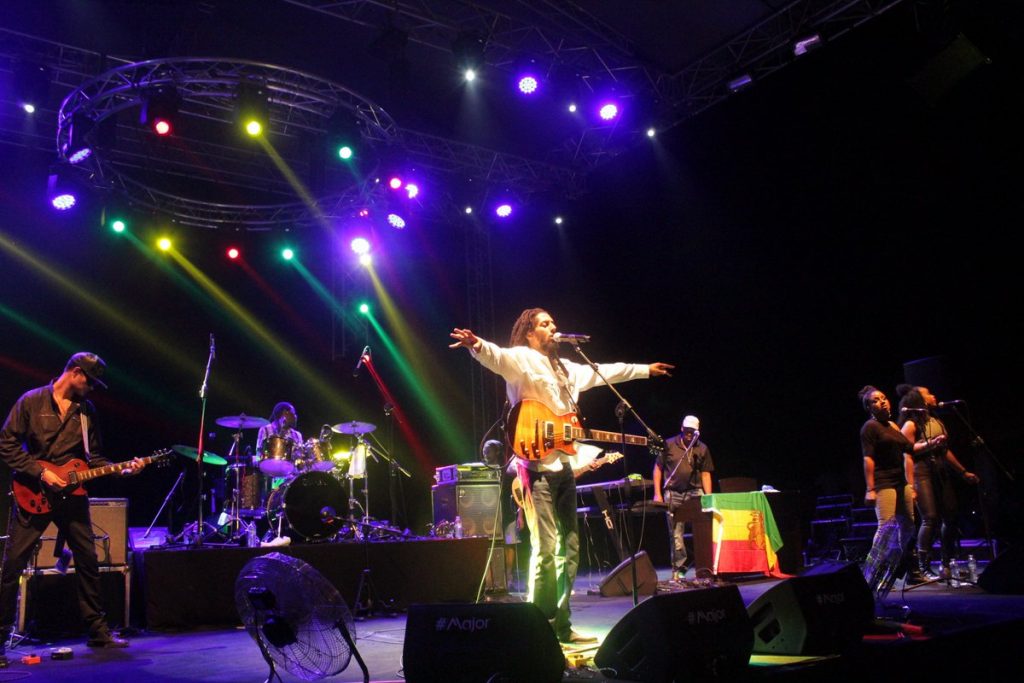
Increasingly though, this type of spiteful opposition from nationalist Greek Cypriots has failed to hold any sway with performers. The island’s recent tragic history does not preclude either the Greek Cypriots or Turkish Cypriots from the right to being entertained today. Music is a powerful, unifying force and essentially, if the deal is right, artists will come and play on either side of the Cyprus divide.
International stars to have rocked North Cyprus this millennium include heavy metal pioneers Deep Purple, Tom Jones, Billy Paul, Natalie Cole, UB40, Sean Paul, Kelis, Tinie Tempah, Artful Dodger, Sam Fox, the Wailers, Bob Marley’s sons Stephen and Julian, opera singer José Carreras, and the world’s biggest DJ Tiesto, who performed to a capacity 6,000 people at Escape Beach Club in 2006. Tiesto returned to North Cyprus in 2008, as have many other DJs and bands.
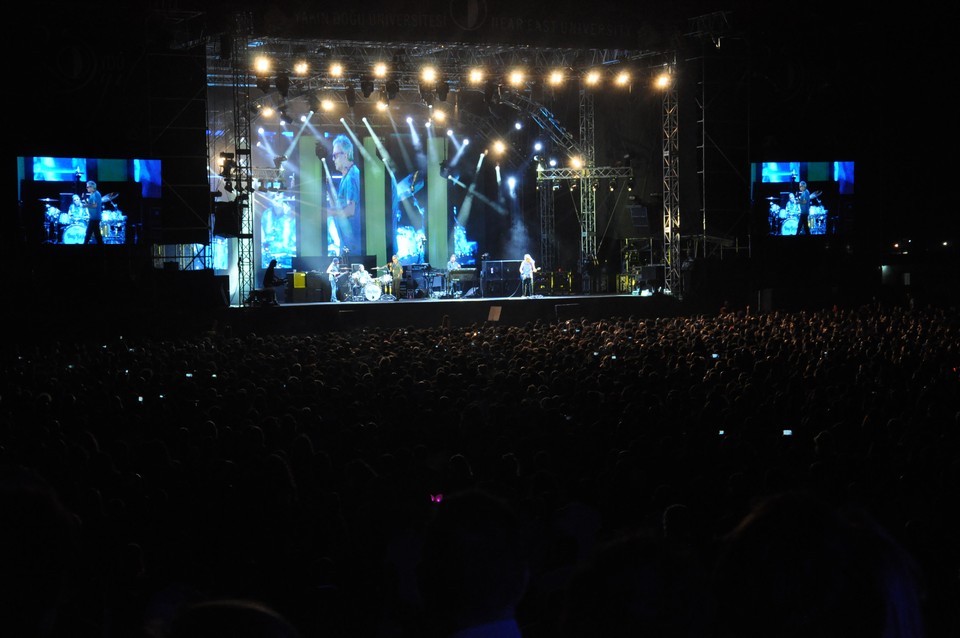
These artists were also subjected to intense pressure not to come to North Cyprus, but they batted away the negativity and performed their concerts to an audience that not only included Greek and Turkish Cypriots, but also many other international residents on the island.
So, when the barrage of negative comments started against the Saint Hilarion event, there was seemingly nothing to concern the promoters in North Cyprus – they’d seen it all before. What they didn’t seem to factor in, though, was how Kölsch would respond as the comments from some Greek Cypriots became more vitriolic and threatening.
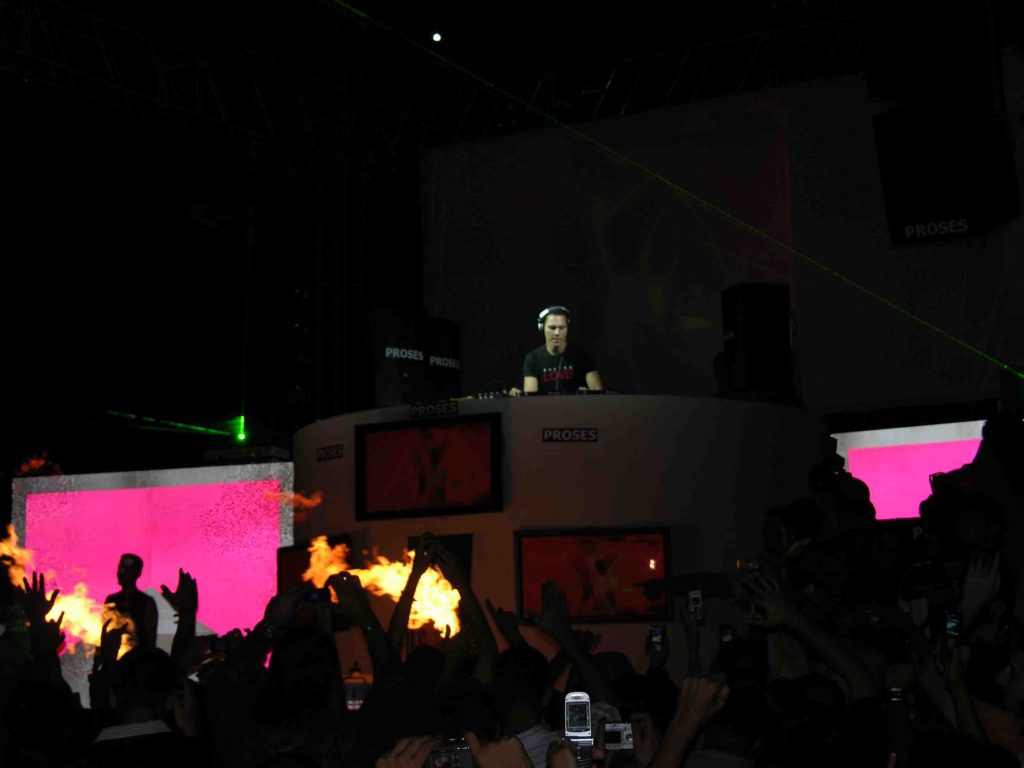
Three days before the concert, Kölsch unexpectedly announced that he and Cercle were cancelling the concert.
In his now deleted social media message, Kölsch said he had been “flooded with comments and personal hostile messages” and that “I no longer feel safe performing the stream”.
The dance music hitmaker, who has collaborated with the likes of Coldplay, Tiga, Imogen Heap and Sasha, never elaborated why he didn’t feel safe performing in North Cyprus – it is one of the safest countries in the world. Yet it was a slight that every Turkish Cypriot felt.
Kölsch’s additional comments also left Turkish Cypriots feeling angry and dejected:
“My intention was never to appear ignorant, offend or hurt anyone, but only to share a moment of beauty and music with all of Cyprus, and the world,” Kölsch wrote.
“Yet another cancelled event thanks to the harassment and propaganda propelled by Greek Cypriots. Time and time again we are relentlessly reminded that Turkish Cypriots are not valued even as fellow human beings”
He ended by stating that, “I have since come to learn that the venue of St Hilarion, and the history of Cyprus is very delicate, and I can only wish for a peaceful resolution in the near future.”
It’s not clear what Kölsch learned through the hostile campaign of nationalists that made him feel so “ignorant”. Certainly his desire not to “offend” went out the window when it came to the feelings of those who had booked him and the people of North Cyprus.
Cercle’s cancellation announcement was equally jarring:
“The purpose of Cercle is to showcase natural and cultural heritage around the world through the prism of our videos and the musical performances of the artists we invite.
“Our shows are meant to unite people and not to divide them or be part of any political conflict.
“This particular announcement did the opposite for some people, so we took the decision with Kölsch not to go forward with the show, as it went against our principles.”
Not content with that, Cercle went on to apologise for seeking to organise an event in North Cyprus:
“We’re saddened and sorry if some people got offended by the choice of this location.”
Top Danish DJ and musician @kolschofficial has pulled out of a @CercleMusic performance in North Cyprus planned for Monday, May 31, after being “flooded” with “personal hostile messages” from Greek Cypriot propagandists. “I no longer feel safe performing the stream,” he wrote. pic.twitter.com/X5r3c3zKGE
— Eltan Halil (@eltanh) May 29, 2021
Unintentionally perhaps, but the message from Cercle was that the views of Greek Cypriots mattered more to them and Kölsch than Turkish Cypriots, and therefore it was better to “offend” their hosts than the racist trolls lobbying them.
Inadvertently, by apologising for their “choice of this location,” Cercle was also guilty of smearing the homeland of Turkish Cypriots as somehow tainted and unworthy of a performance.
North Cyprus is the legitimate home of Turkish Cypriots. It was confirmed in the Population Exchange Agreement of 1975, and the High Level Agreements of 1977 and 1979. Each of these internationally registered documents were signed by both Greek and Turkish Cypriot leaders.
Moreover, every internationally-backed peace plan since 1977, including the 2004 Annan Plan and the proposals at Crans Montana in 2017, are based on a bi-zonal, bi-communal federation – two ethnic zones sharing power in Cyprus. So any attempt to delegitimise North Cyprus by asserting it’s ‘under occupation’ is factually wrong and rooted in anti-Turkish racism.
Even if we could empathise with some of the reasons underpinning their decision, the statements of Cercle and Kölsch smacked of discrimination. There was no thought for equality, or the need to be inclusive, or that by pandering to such biased sentiments would simply embolden the racist anti-Turkish lobby .
“So keep Turkish Cypriots isolated, unable to access live world music/sports, while refusing any UN peace plan to unify, seems to be only plan for many Greek Cypriot hardliners”
Naturally, these elements were not lost on Turkish Cypriots, who let rip at the decision and manner of the cancellation notices.
“Why cercle cancelled this event due to pathetic racist idiots? Music is universal and it can unite all people around the world. This decision is bullsh*t,” posted Celal Bayar Beykoylu under Cercle’s event cancellation on Facebook.
“Yet another cancelled event thanks to the harassment and propaganda propelled by Greek Cypriots. Time and time again we are relentlessly reminded that Turkish Cypriots are not valued even as fellow human beings. We are disgusted by the ignorance of Cercle Music & Kölsch,” tweeted online British Turkish Cypriot publication Okkupied, whose very name is a play on the offensive way some choose to describe the Turkish Cypriot state.
Mete Hizir wrote on Facebook: “Music is universal and not equated with politics this is bullsh*t.”
Yet another cancelled event thanks to the harassment and propaganda propelled by Greek Cypriots. Time and time again we are relentlessly reminded that Turkish Cypriots are not valued even as fellow human beings. We are disgusted by the ignorance of @CercleMusic & @kolschofficial https://t.co/2pDCIr3cBS
— Okkupied. (@Okkupied) May 28, 2021
Tayfun Can Onuk posted, “That’s a pathetic announcement for a horrible decision. I’m speechless. Turkish Cypriots has [sic] their own sovereign state and natural habitants of this island for centuries. Pathetic!”
Julide Gelen called out the Greek Cypriot lobby and urged people to “stand up to them” in her Facebook post: “I said this would happen. Omg let me guess – the Greek Cypriot authorities said you would be breaking the law by entering and performing in an “illegally occupied area”. Its [sic] not the first, nor will it be the last event to be cancelled because of the lobbying of the southern part of Cyprus. I just wish people had the guts to stand up to them. It’s a free world, you can perform whereever [sic] you damn want. Sad”.
Young Turkish Cypriots (YTC) called the decision a “disgrace” in a dedicated post about the cancellation on their Instagram page that was liked and shared by hundreds.
View this post on Instagram
Expressing their disappointment about the decision, YTC said Kölsch and Cercle had not only “let down thousands” of their “fans across the world”, but also “insulted the entire Turkish Cypriot population.”
YTC claimed that “by cancelling” Kölsch and Cercle had “continued the dehumanisation” of Turkish Cypriots, adding it was “a shame” they had “succumbed to racist internet trolls who have posted nothing but misinformation” on their comments section.
Another online collective, North Cyprus Exists, said that by cancelling, Kölsch and Cercle had “effectively contributed to the further oppression of the Turkish Cypriot community inflicted by a group who do not see us as equals”, and called for an apology from the artist and event producer.
View this post on Instagram
Behind the scenes efforts tried to salvage the gig were to no avail. On Monday 31 – the day of Kölsch’s concert – the Turkish Cypriot Tourism and Culture Minister Fikri Ataoğlu confirmed the cancellation in a statement to the media:
“This event, which had been organised through the selfless work of young people beyond politics in order to increase the tourism potential of North Cyprus, was blocked by the outdated mindset of the Greek Cypriot side.”
“The work of our young people, who are the future of our country, in their modern and visionary minds, has been blocked by minds that do not wish to share human values,” the minister continued.
“This disappointment, which is inflicted on our young people, does not lead to anything other than permanence of the wall that has been built by the Greek Cypriots for years between the two sides in Cyprus,” Mr Ataoğlu concluded.
On hearing the news, Baroness Meral Hussein-Ece – the most senior British politician of Turkish Cypriot origin – tweeted: “So keep Turkish Cypriots isolated, unable to access live world music/sports, while refusing any UN peace plan to unify, seems to be only plan for many Greek Cypriot hardliners. #Cyprus”.
So keep Turkish Cypriots isolated, unable to access live world music/sports, while refusing any UN peace plan to unify, seems to be only plan for many Greek Cypriot hardliners. #Cyprus https://t.co/GH7IHZdSJL
— Baroness Hussein-Ece (@meralhece) May 29, 2021
Not all were unhappy about the cancellation. The National Federation of (Greek) Cypriots in Britain could not hide their glee in their tweet:
“We welcome the decision by Kölsch & Cercle Music to cancel the show in the #Turkish occupied part of #Cyprus at Saint Hilarion castle.
“Thank you for adhering to principles of #Justice and #HumanRights & not allowing yourselves to be used as puppets by #Turkey”.
Sonya Karafistan, who last year took on Arsenal FC over its discriminatory stance over its treatment of Mesut Ozil following his solidarity messages to Uyghur Turks facing genocide compared to other footballers and political causes, retweeted the Federation’s message and advised Cercle and Kölsch to “Beware of damage by association”, describing the controversial organisation of “far right hate propaganda”.
@CercleMusic @kolschofficial I would be embarrassed by a message of thanks from a group responsible for spouting far right hate propaganda. Check out their messaging for yourselves. Beware of damage by association. https://t.co/eaewtHbNHk
— Sonya Karafistan (@StealthMother) May 29, 2021
Marcus Anthony, a British music management consultant of Turkish Cypriot heritage, also expressed his dismay at the way the issue was managed.
He told T-VINE, “At a time when the music industry is so conscious about diversity, inclusion and equality, it is shocking to see a major artist and music event producer be swayed by racist trolls. This was a time to stand firm.”
“It can’t have been nice for Kölsch and Cercle to be at the end of such hostility. They needed more prepping about what they would face, but them caving in to the bullies the way they did sent out all the wrong messages,” Anthony added.
“The local production team in North Cyprus are very experienced, having worked with dozens of famous artists. It’s a shame the music wasn’t allowed to do the talking, which would have brought Greek and Turkish Cypriots and many other people together.”
The TRNC promoters involved in the DJ Kölsch-Cercle event had previously brought Tinie Tempah to North Cyprus
Anthony, whose long career in music stretches back to the early 90s promoting the likes of All Saints and breaking the Wu-Tang Clan in the UK, as well as working with the major labels and broadcasters, said he will be raising the matter with the likes of the Association of Independent Music (AIM), Black Music Coalition, and other bodies whose work includes driving equality and diversity across the global music industry.
“North Cyprus exists, fact! Artists absolutely have the right to choose where they play and even to change their minds, but they need to do their homework and ensure they don’t discriminate.
“We need to offer more support and solidarity to the promoters in North Cyprus, so they can book artists with confidence.”

